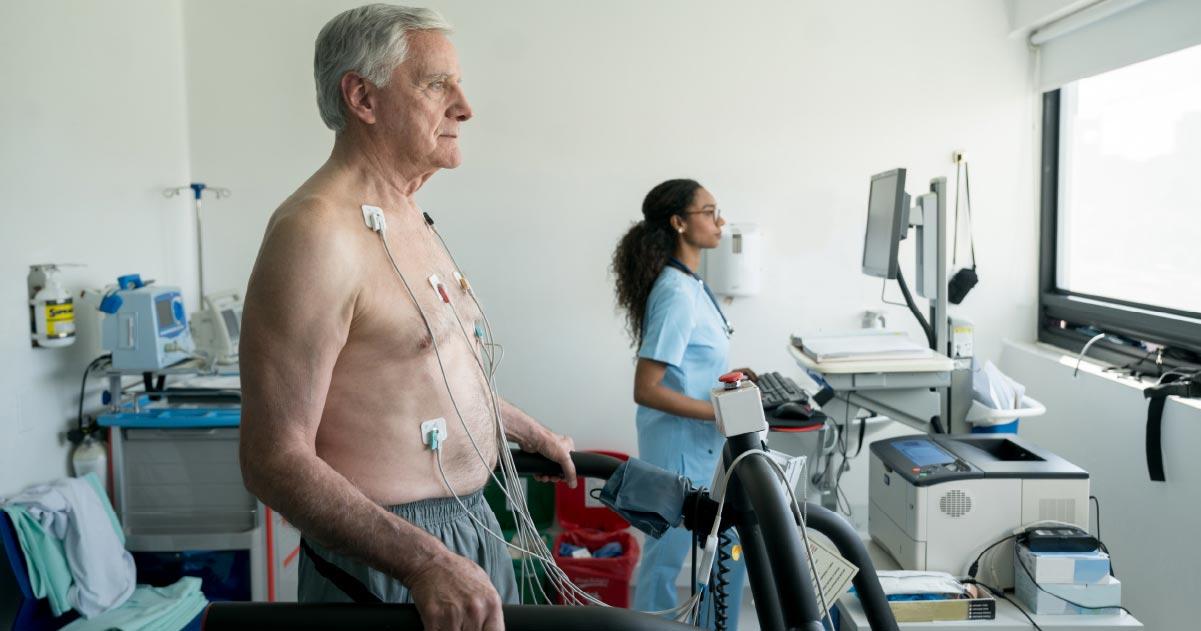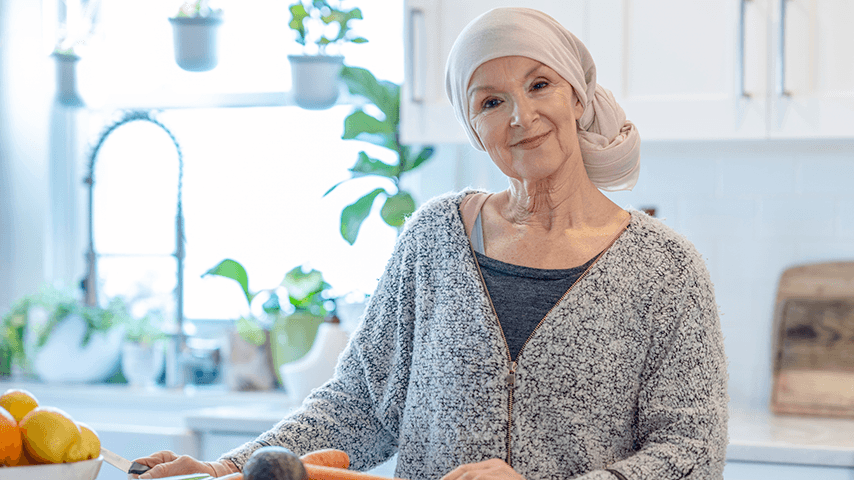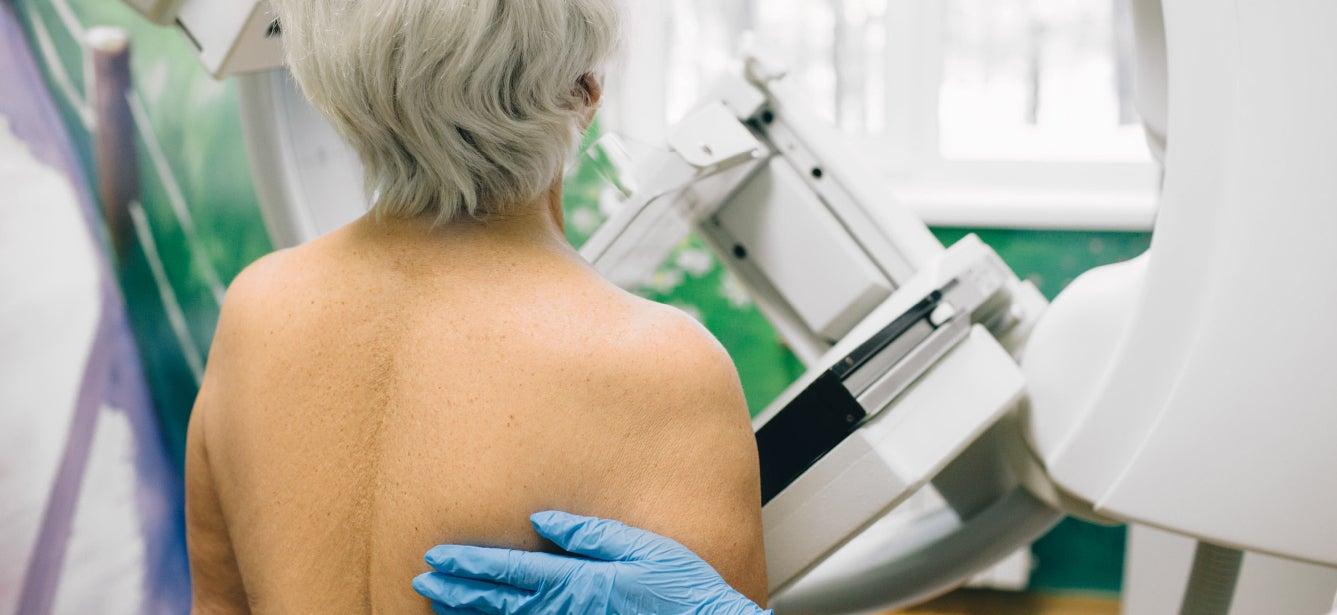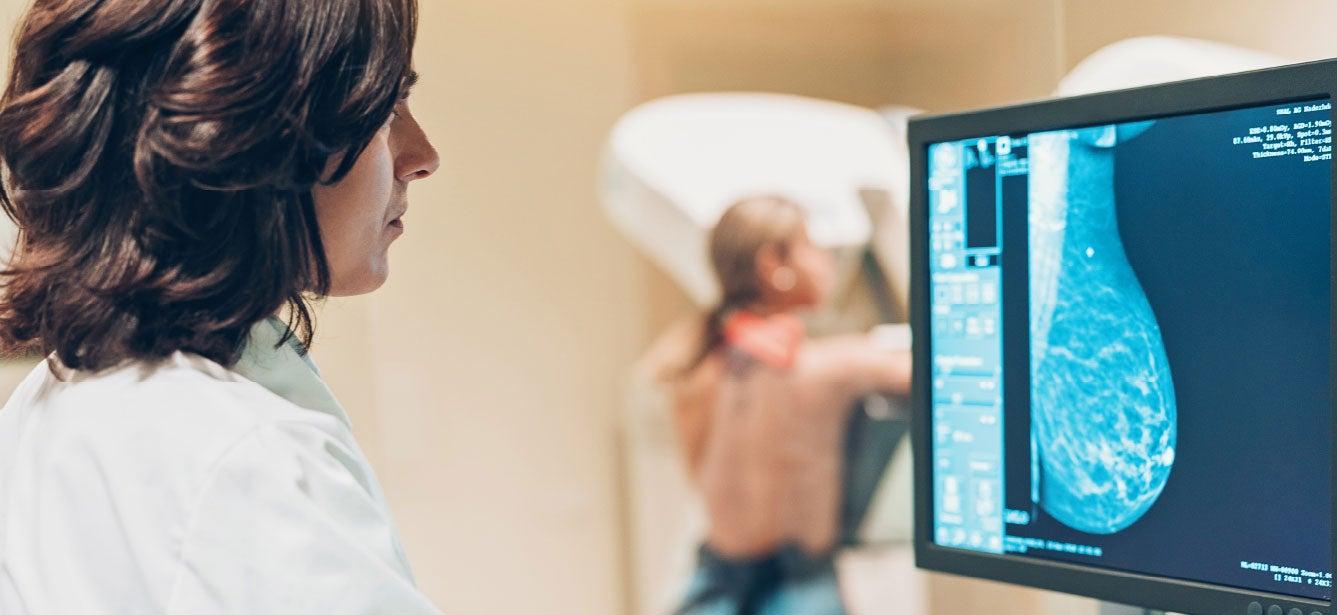Prevention: How Older Adults Can Reduce Their Risk of Cancer
5 min read

Related Topics
April is Cancer Prevention and Early Detection Month, aimed at helping adults of screening age understand what they can do to reduce their cancer risk and learn what routine cancer screenings they need. Getting your routine cancer screenings can mean better outcomes for your health--that means more treatment options, more healthy days ahead, and more time with the people you love.
It’s never too late to start implementing healthy behaviors.
Think of reducing your cancer risk like investing for retirement—most people look back and wish they had started sooner. Ideally, you’d start making investments in your health early on. But it’s never too late to start.
As we continue to make great strides in science, testing and treatments, one thing remains an absolute constant: Early detection equals better outcomes. Early detection can also mean less extensive treatment, more treatment options, and better chances of survival. The five-year survival rate for many cancers is 90% when found in its early stages.
Staying up to date with your recommended cancer screenings is so important as you age, but it can be overwhelming keeping up with all the recommendations.
"When it comes to cancer prevention, knowledge is power, and when we use that knowledge to check our health, we increase our chances for better outcomes, said Heather Mackey, DNP, ANP-BC, AOCN, Senior Director of Cancer Prevention and Early Detection at the Prevent Cancer Foundation.
What screenings and vaccines are recommended for adults 50+?
The screenings you need and how often you should be screened depend on a variety of factors, including age, the body parts you have (such as breasts, testicles and/or prostate), your personal and family health history and your lifestyle habits, such as smoking. The following screening tests are recommended for adults 50 and older who are at average risk:
- Breast cancer screening (If transgender, talk with your health care provider)
- Cervical cancer screening until age 65
- Colorectal cancer screening until age 76
- Prostate cancer screening (Shared decision making recommended. Talk with your health care provider.)
- Lung cancer screening
- Oral cancer exam
- Testicular check
- Skin check
- Hepatitis B vaccine up to age 59, if not already vaccinated*
- Hepatitis C testing at least once between ages 18-79*
*Hepatitis B and C are linked to liver cancer.
If you have risk factors that put you at greater risk for certain cancers, talk to a health care provider about what is best for you.
What else can seniors do to reduce their risk of cancer?
- Don’t use tobacco. Tobacco use is linked to several cancers, including lung, breast, colorectal, throat, cervical, bladder, mouth, and esophageal cancers. About 80 to 90% of all lung cancers are related to smoking. It’s best never to start using tobacco, but if you do use tobacco products, it’s never too late to quit. Talk to your doctor for resources to help.
- Wear sunscreen. Skin cancer is the most common and preventable cancer in the U.S. According to the Centers for Disease Control and Prevention (CDC), most cases are diagnosed in adults over the age of 65. Older men are much more likely than women to develop melanoma, the deadliest form of skin cancer. Use sunscreen with at least SPF 30+ year-round, even on cloudy days.
- Eat a plant-based diet. A 2021 study found that three servings of non-starchy vegetables and two of fruit every day resulted in a 10% lower risk of death from cancer.
- Limit alcohol. The more alcohol you drink the greater your risk of certain cancers, including breast, colorectal, esophageal, oral, and liver cancers. If you do choose to drink, limit your drinking to no more than one drink a day if you are a woman, and no more than two a day if you are a man.
- Maintain a healthy weight and be physically active. Being overweight or obese is linked to at least 13 types of cancer. Aim to get at least 30 minutes of physical activity at least five days a week. Move more and sit less. Regular exercise is linked to a lower risk of colorectal, breast and endometrial cancers, and can also help you reduce stress, increase energy, boost your immune system, and control your weight.
- Practice safer sex. The human papillomavirus (HPV), which is spread through vaginal, anal, and oral sex, is linked to at least six types of cancer, including cervical and oropharyngeal (cancer of the back of the throat, including the base of the tongue and tonsils). Be sure to use a condom every time you have sex to help protect you but know that this does not provide 100% protection. The hepatitis B and hepatitis C viruses can be spread through sex or by sharing needles and syringes for injection drug use.
It's also important to know your family health history. Learn what types of cancer and other health conditions have affected your family, share with your loved ones, and talk to your health care provider about how it impacts your cancer screenings. To learn more about cancer prevention and early detection, visit preventcancer.org.




